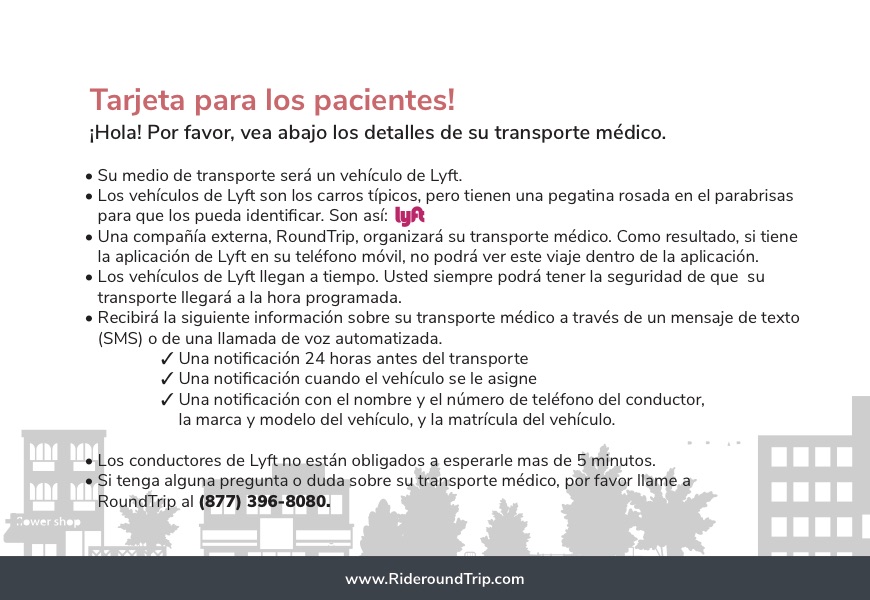Barriers to care are defined as anything that limits or prevents people from receiving adequate health care. Among the most common barriers to care are financial hardship, geographic location, and poor health literacy. The barrier of transportation is often the result of one, or all three, of those most common barriers to care. Ten thousand people every day (or 3.6 million people every year) are facing challenges with transportation to and from care. What further compounds the problem are language, education, and cultural/ethnic barriers.

As we tackle one of the more considerable barriers to care with transportation, we have to solve some of the other related obstacles along the way. The one we are talking about today: language.
The Roundtrip team believes that all people deserve access to care — which means we transport everyone and serve a very diverse community. Within our community, we work with a lot of people who speak English as a second language. In the entire US, there are over 41 million native Spanish speakers— and another 11.6 million bilingual people, many of whom are the children of Spanish-speaking immigrants.

To better communicate and strengthen patient trust from the very beginning, we launched bilingual text messaging.
Now our riders can choose to receive their text message ride notifications in Spanish.
By addressing the language barrier in this way, we believe more patients will get the care they need on a regular and ongoing basis and with greater ease.
One partnering health system in Northern New Jersey requested a need for the bilingual texting feature. Now that it is here, we are all very excited. In addition to the bilingual texting feature, we have been giving out these ride cards to patients. Their Transportation Manager tells us, “Patients love the cards” and have asked us to order more. These patient cards serve as reminders on how to book rides with Roundtrip and contain our Navigation Center contact info.

Everybody deserves access to the care they need regardless of geographic, socioeconomic, cultural background. Improving access is more than just the physical transport of patients. Improving access means building trust with communities and building a product that speaks to them— literally. We are genuinely excited about the response to this new feature and how it is enhancing usability for our riders.
